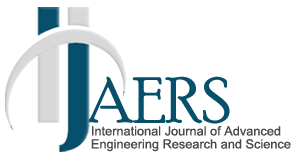Identifying students’ prior knowledge to enable Meaningful Learning |
| ( Vol-8,Issue-4,April 2021 ) OPEN ACCESS |
| Author(s): |
Paulo de Sá Filho |
| Keywords: |
|
Skills; Professional education; Distance education. |
| Abstract: |
|
Success in the learning process is a complex phenomenon that is established by several causes. In view of this, students 'prior knowledge takes on a relevant role in their explanation, thus, seeking means and methods that make it possible to identify this knowledge is fundamental and makes teachers equipped with this information consider the students' prior knowledge in the mediation of learning. In this way, leading their students to meaningful learning. With this, the present study presents the results obtained from the application of a questionnaire developed as an instrument to identify the pre-existing knowledge of students in Professional Distance Education courses. Thus, it is intended to contribute with teachers in the formulation of learning situations that take into account students' prior knowledge, thus resulting in a teaching-learning process that provides students with meaningful learning. For this, a descriptive and quali-quantitative case study was carried out. Which is divided into three sections: in the first, conceptualization of prior knowledge and meaningful learning is done, as well as discussing the recognition of previous knowledge; in the second, the research method used is presented; and finally, in the third section, the results obtained are presented and discussed. the research method used is presented; and finally, in the third section, the results obtained are presented and discussed. the research method used is presented; and finally, in the third section, the results obtained are presented and discussed. |
| Article Info: |
|
Received: 29 Jan 2021; Received in revised form: 18 Mar 2021; Accepted: 09 Apr 2021; Available online: 28 Apr 2021 |
|
|
| Paper Statistics: |
| Cite this Article: |
| Click here to get all Styles of Citation using DOI of the article. |
- Track Your Paper
- editor.ijaers@gmail.com
- ISSN : 2349-6495(P) | 2456-1908(O)



Advanced Engineering Research and Science